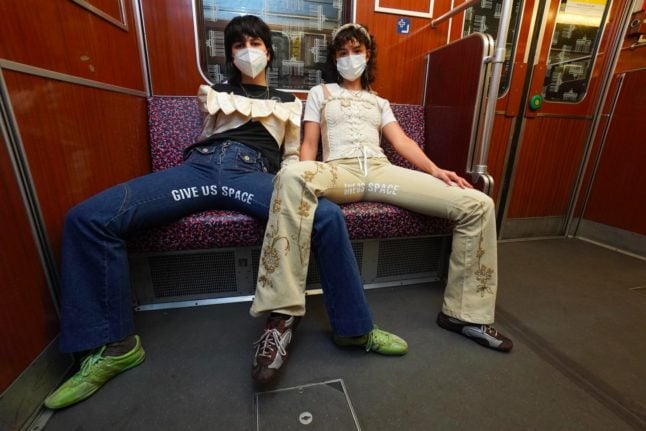It was a gay chef working at Christoffer Gustavsson’s restaurant that gave him the idea to run a club night at Syrran & Brorsan, the bar and dining venue he runs with his sister in Falkenberg on Sweden’s west coast.
The town, which is a popular tourist resort during summer, is home to more than 20,000 residents, but doesn’t currently have any bespoke club nights catering for the area’s gay, lesbian and transgender crowd.
“Our chef is pretty sure this is the first gay club in Falkenberg (…) it’s like a normal club but with lots of gold confetti and pride flags,” explains Gustavsson.
“It’s a special place people can go to where nobody is looking at them in the wrong way.”
But Gustavsson says the new club night’s first event took place over the weekend against a backdrop of homophobic tensions in the town.
“It started last Thursday when I got a message from someone threatening that they were going come to the restaurant and try to destroy the party, and also that they wanted to beat me up,” he tells The Local.
According to Gustavsson, around a dozen diners who had arranged to eat in the restaurant ahead of the gay party also cancelled their reservations soon after he and his sister Theresa Andersson spoke to local media about their project.
“We don’t know for sure if it was linked but the booking was made three weeks ago and cancelled two days after we started talking about it [the club night].”
Gustavsson says that while the event still went ahead and turned into a “cool and happy party”, he remains “angry…more angry than scared” by both incidents, considering his country’s reputation for embracing equality.
“I was so disappointed (…) Because we live in Sweden we should all understand gay culture. I don’t have an answer about why this happened,” Gustavsson argues.

Stockholm's Pride festival. Photo: Vilhelm Stokstad/TT
Campaign group ILGA-Europe recently rated Sweden the top spot in Scandinavia for lesbian, gay, bisexual, transgender and intersex people (LGBTQ). A new record for Pride parties in the Nordic country has also been set in 2015, with more than 30 Swedish towns and cities organizing special celebrations.
However, the events in Falkenberg are not the first to cause commentators to question tolerance in Sweden this year. Back in February, a hotel hit the headlines after a man was told he could not book a spa weekend, but managed to make the same reservation a day later after using a woman’s name.
Gustavsson says his experiences have made him even more determined to offer more club nights for the gay community in his region.
“We’re gonna make a new club night around Christmas and New Year (…) we already know we're gonna need an even bigger venue.”



 Please whitelist us to continue reading.
Please whitelist us to continue reading.